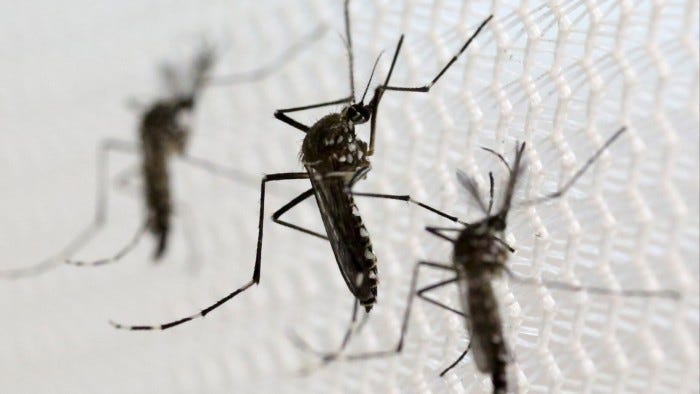the health strategist
knowledge portal, institute & advisory
for continuous health transformation
and digital health – for all
Joaquim Cardoso MSc.
Servant Leader,
Chief Research & Strategy Officer (CRSO),
Editor in Chief & Senior Advisor
January 9, 2024
This is an Executive Summary of the article “Brazil warns dengue cases could hit 5mn as extreme weather takes toll”, written by Brian Harrys, and published on the Financial Times.
What is the message?
Health officials in Brazil anticipate a potential dengue fever outbreak reaching a record 5 million cases due to the convergence of
- climate change,
- El Niño’s influence, and
- extreme weather conditions, posing a severe public health risk.

One page summary
Brazil faces an imminent health crisis as health officials project a potential surge of dengue cases to 5 million this year, signifying a more than three-fold increase from the 2023 caseload of 1.6 million.
The intersection of climate change and El Niño has triggered severe weather patterns, including a heatwave, drought in the Amazon, and heavy rains in the south, creating ideal conditions for the spread of mosquito-borne diseases like dengue, chikungunya, and Zika.
Experts attribute the prolonged higher temperatures to an extended mosquito breeding season, elevating the risk of transmission. Of significant concern is the re-emergence of the DENV-3 serotype, absent since 2007, leaving a larger portion of the population vulnerable.
The World Health Organization recognizes dengue fever as a substantial global health challenge, citing a tenfold increase in reported cases worldwide between 2000 and 2019. Brazil contributed significantly, reporting over 2.9 million suspected cases, although the discrepancy in reported cases might be due to stricter notification standards.
Despite the health ministry’s efforts to introduce a dengue vaccine, limited supply constraints due to manufacturing issues restrict its distribution to priority regions.
Despite the health ministry’s efforts to introduce a dengue vaccine, limited supply constraints due to manufacturing issues restrict its distribution to priority regions.
Key Points and Arguments:
- Climate change and El Niño are fueling severe weather patterns in Brazil, facilitating the spread of mosquito-borne diseases.
- The current conditions have enabled increased transmission of dengue, chikungunya, and Zika viruses.
- Prolonged higher temperatures extend the mosquito breeding season, elevating the risk of disease transmission.
- The re-emergence of the DENV-3 serotype raises concerns about increased susceptibility in the population.
- The World Health Organization recognizes dengue fever as a substantial global health challenge, with Brazil significantly contributing to reported cases.
- Stricter notification standards in Brazil might contribute to the discrepancy in reported cases.
- The supply constraints of the dengue vaccine hinder widespread distribution.
Conclusions and Recommendations:
Given the imminent threat of a severe dengue outbreak, urgent action is required:
- Implement comprehensive mosquito control strategies to reduce breeding sites and limit disease transmission.
- Enhance public health awareness campaigns to educate the population on preventive measures against mosquito-borne diseases.
- Address manufacturing bottlenecks to ensure an adequate supply of vaccines and broaden its distribution to affected regions.
- Foster international collaboration to address the broader issue of climate change and its impact on the spread of infectious diseases.
In conclusion, proactive and collaborative efforts are imperative to mitigate the looming dengue epidemic in Brazil and address the underlying factors exacerbating the spread of mosquito-borne diseases.












